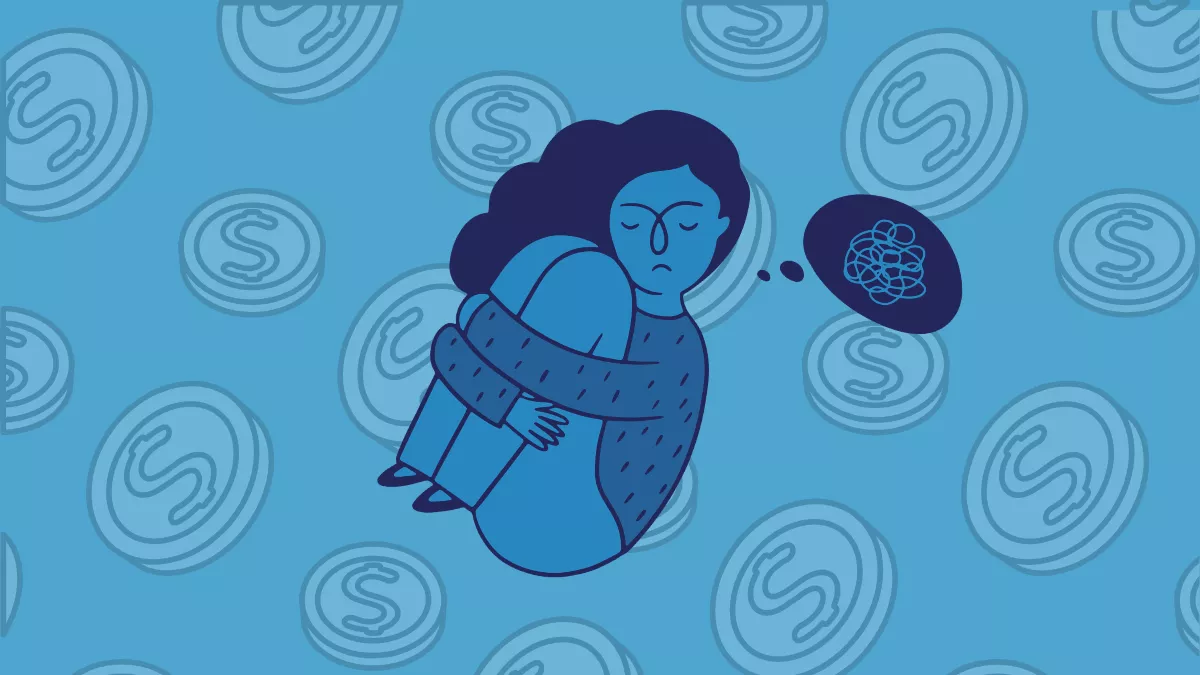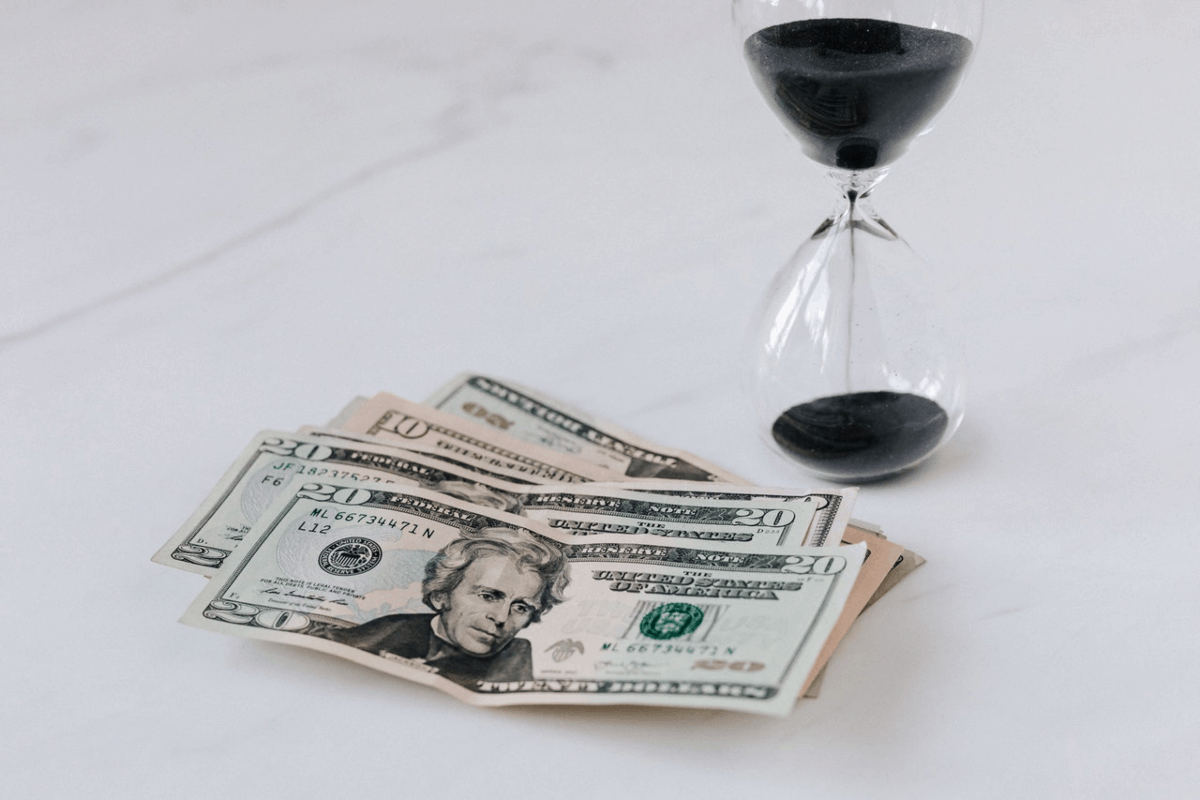It’s been 7 days since you sent out the invoice to your client, but your bank account is still waiting. This month’s unpaid bills are lying on the table. And the rent due date is just around the corner.
You look at your savings account and scratch your head. By the looks of it, the balance will only last another month if you don’t find more high-paying clients that pay on time.
The pressure to charge higher and find clients is mounting day by day. Can you relate to this?
Yup – today, we’re going head-to-head with one of the biggest demons most freelancers and solopreneurs face: financial instability. I’ll cover:
What causes financial instability in your freelance career?
How did freelancers manage their money?
Financial instability is the sense of not having a safety net, not knowing when the next paycheck is coming in, or feeling uncertain about your career in general.
As a result, you may become hyperconscious about how much to charge your clients and desperately hope that they won’t reject you.
Believe it or not, even highly successful freelancers need to deal with this.
The truth is that feeling financially secure often has less to do with the dollars in your bank, and more to do with how you feel about money.
This is why it’s an uphill battle to try getting rid of financial instability – because it’ll be with you regardless of how rich you are.
But that doesn’t mean you have to let it control your life. There’s something you can do about it, and that’s what you’re about to learn in this article.
Let’s dive right into the basics: what’s at the heart of financial instability?
Also known as financial insecurity, most people define financial instability as a ‘lack of money’.
Yet, even the rich and successful can also be uncertain about money.
So what does financial instability really mean? It’s worrying about money.
YouGov’s latest report, Perceptions of Financial Security and CNBC reported that financially insecure Americans have a host of financial worries such as:
If these worries are gone, you’d probably think you’ll be financially stable.
But the reality is that, no matter what stage of life you’re in, financial worries will always stick with you.
A new freelancer struggling to get clients has its own fair share of financial worries. Likewise, a veteran solopreneur with multiple long-term retainers also has their own financial battles.
Being financially stable is not about checking off each financial worry you have now. Trust me; more will spring up as you progress through life. It’s about understanding where it comes from and changing the way you see it.
One way is to understand the effects of feeling financially insecure on you.

The financial insecurity plaguing most Americans for years is now increasingly becoming a health risk. The stress of not being able to provide for yourself or your family is linked to sleep problems, migraines, heart disease, diabetes, and more.
The shocking fact is that about 95 million Americans didn’t want to see the doctor because of the high medical care cost. But delaying treatment could start a plethora of diseases. The infamous combo is heart disease, diabetes, and obesity.
Financial stress can also contribute to other physical and mental conditions such as:
Financial instability can also affect your mental and emotional health.
A study by Viking found that 55% of freelancers say they suffer depression and 62% feel stressed as a result of their job. We believe one of the big contributors to depression and stress is financial worries.
Hoarding, charging less than the value you provide, avoiding money issues and bills, compulsive buying, lying about your spending behaviors are some of the less-obvious symptoms of financial instability.
If you’re struggling financially, you can contact the Financial Counseling Association of America.

Freelancers and solopreneurs don’t get paid vacation time off or sick days. This is the nature of freelancers: no work, no pay.
If taking a break makes you want to scream, you might be perceiving each hour passed equals income loss — especially if you get paid hourly.
You might have fallen into this “time-is-money” financial trap.
You started sleeping less. You stopped hanging out with friends. And sometimes even work on Saturdays and Sundays.
Taking breaks or free time gets tainted with guilt because there’s a cost associated with it: money.
What happens if you don’t keep these behaviors in check?
You’ll be a slave to your work and clients. Day and night, work is all you do and think about. You’ll also lose all pleasure in leisure activities because they don’t generate income.
When your life is all about working and earning, that’s where financial instability grows. You’ll constantly think you don’t have enough, and the only way to fill that void is to work.
You want to make sure that the things you want to happen actually do happen, and that is exactly where your need for certainty begins. You want to know what will happen next so you can rest in the moment knowing everything will be okay.
That’s because your brain doesn’t like uncertainty — it’s like a pain to be avoided. But, on the other hand, certainty feels rewarding, and we tend to steer toward it.
Yet, you’re completely vulnerable.
Long-term retainer clients could terminate the contract at any moment. A worldwide pandemic like Covid-19 could render many freelancers jobless overnight. Anything that hits the economy lands straight on your lap. There’s no “employer” to cover you.
Many employee-turned-freelancers crave similar feelings of certainty as they were in companies. But that is what leads to financial instability.
One of the biggest worries plaguing Americans is “not having enough money for long-term goals such as retirement, child’s education, and housing”.
In short, you don’t have enough emergency funds to pay for your goals and cushion you from risks such as recession, medical costs, or simply low-income times.
One simple question to measure your safety net is:
Do you have enough savings to cover 6 to 9 months of bills if you’re not working?
Many freelancers and solopreneurs fear this: the inability to pay the bills. They’re always living from paycheck to paycheck and have hardly anything left for savings.
A study by GOBankingRates showed 69% of adult Americans have less than $1,000 in a savings account. Another study by Bankrate indicated that 38% of Americans say they can’t save any money because their expenses are too high.
Without having a safety net, it’ll be very difficult to feel financially stable.

Financial instability has a lot to do with how you see and manage money.
In this section, you’ll learn new perspectives of how financially secure freelancers perceive their income and how they manage their money without falling into the rat-race trap.
If you’re the type of freelancer who values time is money, this habit is for you.
Instead of seeing breaks as a loss of income, see them as a way for you to recharge. So, you can focus better and longer, create a higher quality of work, and deliver faster.
With that said, taking a break as a freelancer isn’t as easy as filling in an application form and waiting for approval from your manager.
You need to plan for your breaks. You can either reschedule your deliverables and finish them early or inform your clients to pause for a week or two.
Instead of allowing uncertainties to strike fear in them, financially wise freelancers create Plan Bs for each surprise that occurs.
For example, if you don’t have clients for 3 months, what would you do?
In split seconds, your brain might flash some of the worst-case scenarios: unpaid bills, living on the streets, going back to your parents’ house, couch-surfing at your friend’s place, etc.
While these predictions could paralyze you, successful freelancers take these worst-case scenes and make plans out of them following the 4 steps below:
The magic of this exercise is that you’re aware of all of your worst-case fears and you know exactly what you need to do in case they happen.
Even better, you’re already preparing for the future, today.
Most veteran freelancers and solopreneurs understand the importance of having a thick and wide safety net. They know their clients could disappear at any moment and no one can shield them from the risks.
That is why it’s best to set up an emergency fund as soon as possible.
You might have heard of paying yourself first, then pay the rest. Yes, that’s right, but not everyone could afford that.
If you’re earning $2,000 and your bills are $2,000, there’s no way for you to pay yourself first.
In this case, what would successful freelancers do?
Before they budget realistically they track their expenditure. Why? Because they want to reduce expenses. It’s the easiest and fastest way for any new freelancer to start saving.
Take a look at how you can cut costs. Here are some common areas to consider:
Look at how you spend and reduce expenses in each possible aspect as much as possible.
Embrace the life of a minimalist and hold off your dream lifestyle first. Your future self will thank you.
With this article, you’ve learned how to deal with financial instability. You understood the effects on your health, mental and emotional well-being, and the potential causes of that gnawing pain in your chest whenever you think about money.
Most importantly, you have learned 3 habits that successful freelancers are practicing to overcome their financial insecurity.
We hope that this post has helped you understand your situation and options better to help you have a greater sense of control over your future. The next step is up to you!
Make sure to check out our other write-ups on improving your relationship with money!
Tifa Ong is a freelance copywriter who writes for coaches and business owners around the world. She’s passionate about enhancing all 5 dimensions of her well-being: physical, mental, emotional, financial, and spiritual.